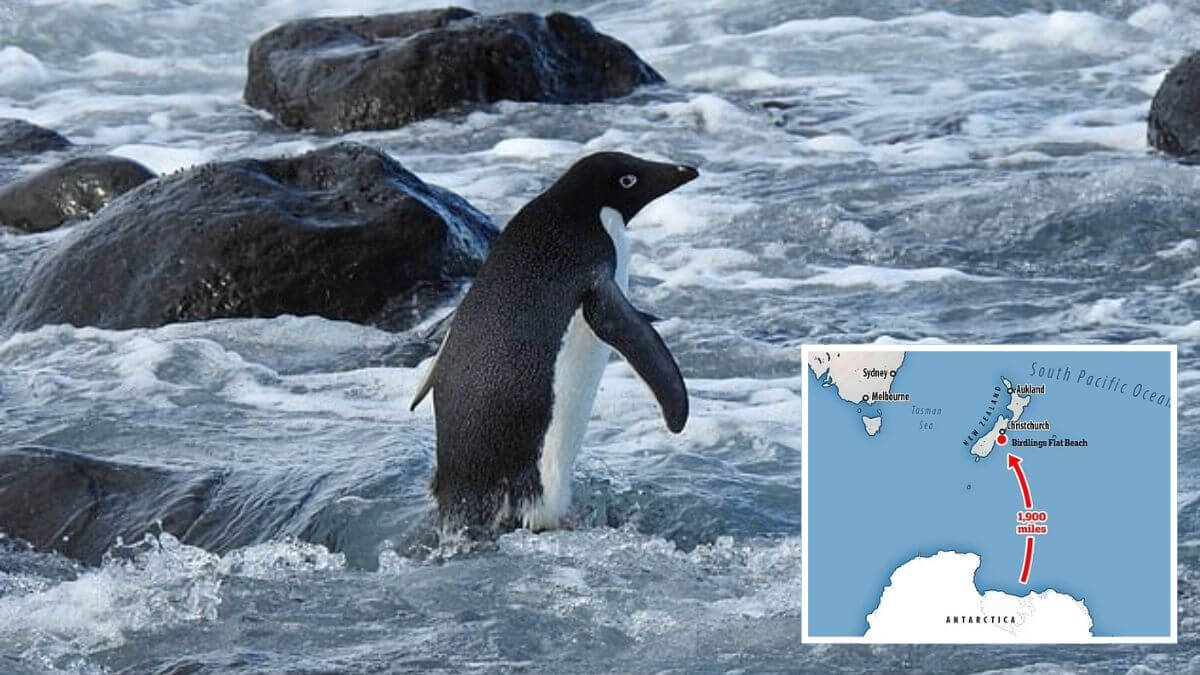An Adèlie penguin stranded far from home has been returned to the water, marking the species’ third confirmed visit to New Zealand.
On Wednesday night, the young male Adèlie, commonly known as Pingu by locals, was discovered on Birdlings Flat Beach in Christchurch.
The Adèlie is a native of the Antarctic shore and would have swum thousands of kilometres to arrive at his improbable destination.
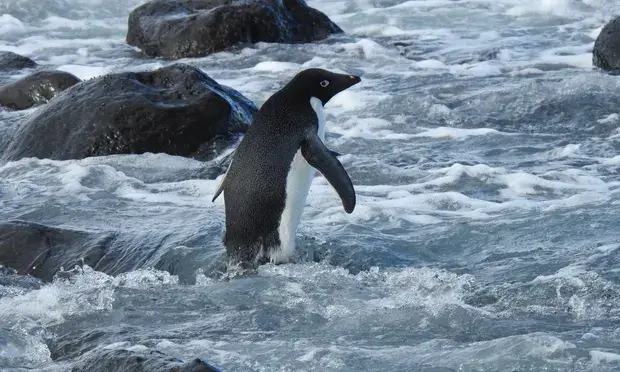
Local Harry Singh noticed him and followed him around the beach, fluttering his wings and wriggling his tail but not returning to the water.
Anita Spencer, senior ranger with New Zealand’s Department of Conservation, said the department worked with a rehab team to prepare the penguin for his return journey.
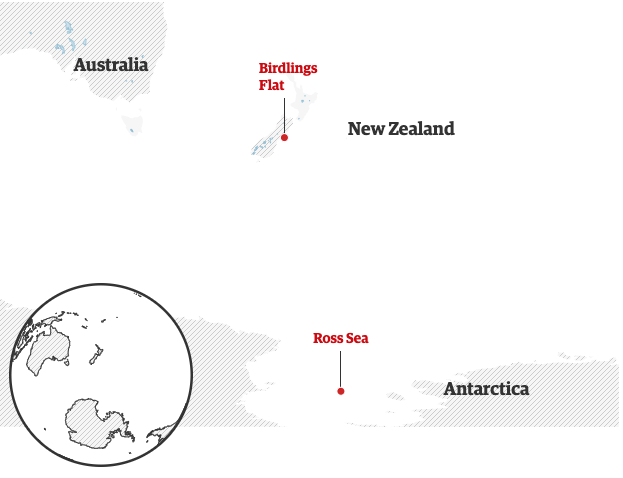
‘He was a bit underweight and fatigued when he was picked up from the beach a couple of nights ago,’ she told AAP.
Pingu’s blood tests revealed that he was underweight and dehydrated. He has since been given fluids and is being fed through a feeding tube.
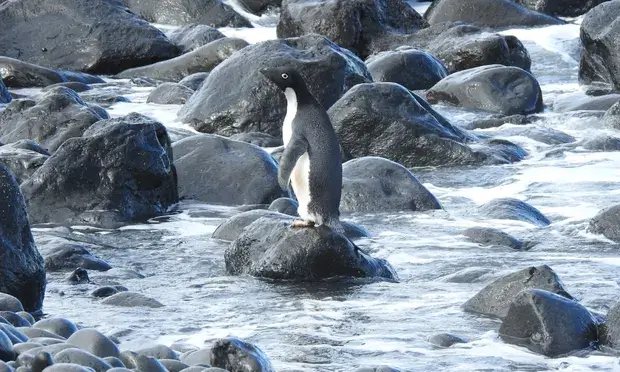
‘He was served some fish smoothies. He was in good shape and eager to return to the sea.’
The DOC is only aware of two previous Adèlie sightings on the New Zealand mainland, the most recent in 1993 in Kaikoura.
‘I wouldn’t say he was lost,’ Ms Spencer added.
‘Young penguins do roam. They do not reproduce until they are three to six years old. So he’s gone on a trip before returning to the colony.’
Ms Spencer stated that the visitor was stressed on Friday, which was to be expected given the un-Antarctic local temperature of 26°C.
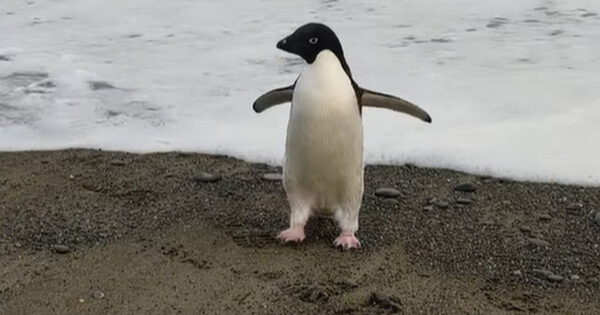
Following his fishy meal, the penguin was transported to a carefully selected beach on the Banks Peninsula for release.
‘He’s moving south, hopefully, but there’s no certainty.’ ‘It’s basically up to him,’ Ms Spencer added.
‘We chose a south-facing bay with few people and no pets.’
‘It began calling when he was back at the beach and near the sea.’ It’s always wonderful to see birds returning to their native environment.’
‘He leaped across a couple of boulders, went down to the water’s edge, and dove in as the waves came in.’
‘They’re incredibly vulnerable, and the sea is the safest place for them.’
